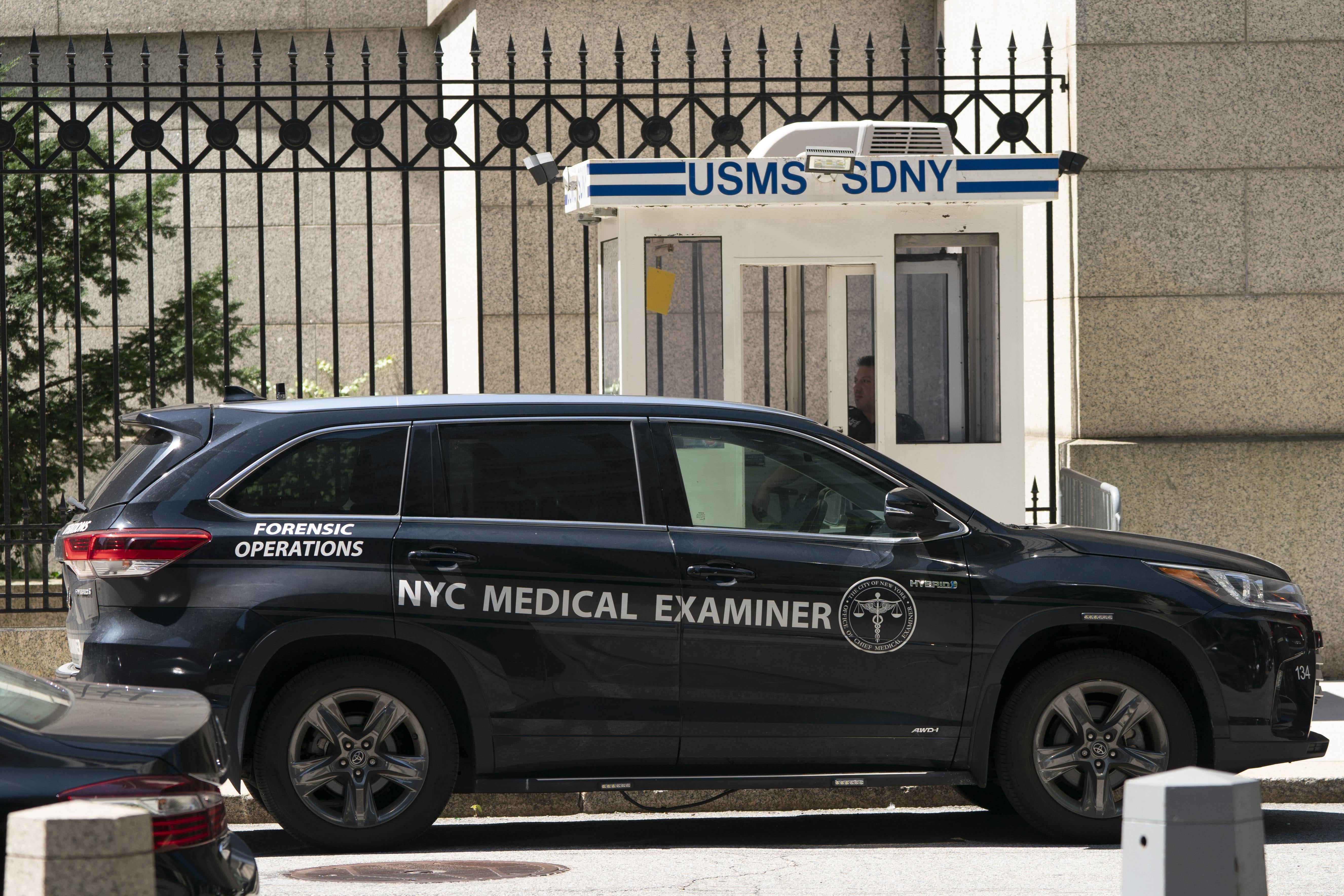The autopsy conducted in the wake of Jeffrey Epstein’s death by apparent suicide shows the financier suffered multiple breaks in his neck bones, which while possible during instances of suicidal hanging, the Washington Post reports, is more commonly found in homicide victims of strangulation. The Epstein autopsy has not yet been made public, but the Post’s reporting based on multiple sources familiar with the results shows that the circumstances surrounding Epstein’s death while awaiting trial on sex trafficking charges remain deeply shrouded in mystery. The autopsy was completed Sunday by the office of New York City’s chief medical examiner, Barbara Sampson, but the cause of his death was listed as pending.
Among the broken bones in Epstein’s neck was the hyoid bone, which when broken typically prompts further investigation into the cause of death, the president of the National Association of Medical Examiners told the Post. “People familiar with the autopsy, who spoke on the condition of anonymity due to the sensitive stage of the investigation, said Sampson’s office is seeking additional information on Epstein’s condition in the hours before his death,” the Post reports. “That could include video evidence of the jail hallways, which may establish whether anyone entered Epstein’s cell during the night he died; results of a toxicology screening to determine if there was any unusual substance in his body; and interviews with guards and inmates who were near his cell.”
Epstein had been detained at the Metropolitan Correctional Center in Manhattan before his death Saturday morning. The nature of Epstein’s crimes, which appeared to implicate rich and powerful people in possible sex crimes, and the unusual handling of Epstein as an inmate has aroused suspicions—and conspiracy—about the nature of his death. Epstein was taken off suicide watch just days after a previous attempt kill himself. He was then returned to the special housing unit and kept in a cell without a fellow prisoner, even though it is standard operating procedure to house prisoners considered a threat to kill themselves with a roommate. In the hours leading up to Epstein’s death at 6:30 a.m. Saturday morning, the two prison guards on duty reportedly failed to make the required 30-minute check-ins on Epstein and then doctored the prison logs to disguise the breach of protocol.

